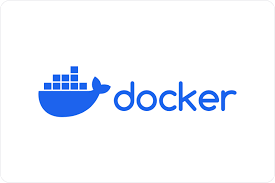Understanding Docker Fundamentals: A Comprehensive Guide
 Avik Dutta
Avik Dutta
Introduction:
Docker has revolutionized the world of software development and deployment by providing a lightweight, portable, and efficient way to package and distribute applications. In this blog post, we will explore the fundamental concepts of Docker, its architecture, and how it simplifies the process of building, shipping, and running applications.
What is Docker?
Docker is an open-source platform that automates the deployment of applications inside lightweight, portable containers. Containers encapsulate an application and its dependencies, ensuring consistency across different environments.
Key Components of Docker:
Docker Engine: The core of Docker, responsible for building, running, and managing containers.
Docker Images: Lightweight, standalone, and executable packages that include everything needed to run a piece of software, including the code, runtime, libraries, and system tools.
Containers: Instances of Docker images, running as isolated processes on the host machine.
Docker Registry: A repository for storing and sharing Docker images, such as Docker Hub.
Dockerfile: Building Images
Docker images are created using a simple and efficient script called a Dockerfile. This script specifies the base image, application code, dependencies, and configurations. The Docker build process reads the Dockerfile and produces a ready-to-run image.
#Sample Dockerfile FROM ubuntu:latest LABEL maintainer="Your Name <your.email@example.com>" RUN apt-get update && apt-get install -y nginx CMD ["nginx", "-g", "daemon off;"]Container Orchestration: Docker Compose
Docker Compose is a tool for defining and running multi-container Docker applications. With a simple YAML file, you can describe the services, networks, and volumes required for your application, making it easy to manage complex setups.
yaml version: '3' services: web: image: nginx:latest ports: - "8080:80"Networking in Docker:
Docker provides a bridge network by default, allowing containers to communicate with each other. You can create custom networks to isolate containers and control communication between them. Additionally, Docker supports host and overlay networks for more advanced setups.
Persistent Data with Volumes:
Docker volumes provide a way to persist data generated by and used by Docker containers. They are especially useful for databases and other stateful applications, ensuring that data is retained even if the container is removed.
Security Considerations:
Docker containers are designed to be isolated, but understanding security best practices is crucial. This includes minimizing the attack surface, using trusted base images, and regularly updating images to patch security vulnerabilities.
Docker in Continuous Integration/Continuous Deployment (CI/CD):
Docker plays a crucial role in CI/CD pipelines, allowing developers to create reproducible builds and deploy consistent environments across development, testing, and production.
Monitoring and Logging:
Docker provides tools for monitoring container performance and collecting logs. Integration with third-party monitoring solutions allows you to gain insights into containerized applications.
Conclusion:
Docker has become an integral part of modern software development and deployment practices. Understanding its fundamentals empowers developers to build, ship, and run applications consistently across different environments. As you delve deeper into Docker, you'll discover its versatility and impact on the development lifecycle.
Subscribe to my newsletter
Read articles from Avik Dutta directly inside your inbox. Subscribe to the newsletter, and don't miss out.
Written by

Avik Dutta
Avik Dutta
Experienced with a demonstrated history of working in the information technology and services industry. Strong engineering professional skilled in Linux and Cloud platform, AWS, Azure. Passionate about DevOps....